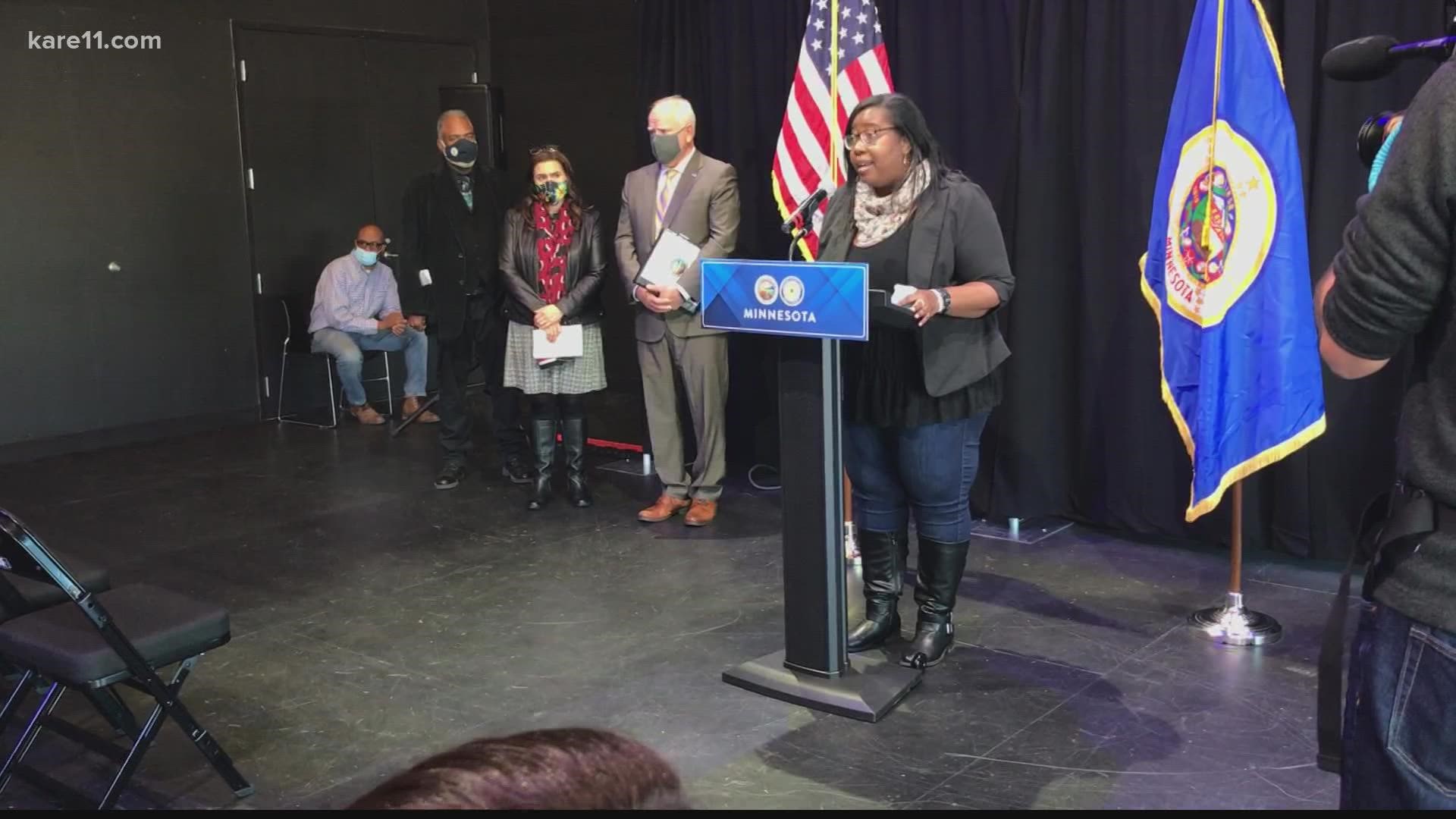MINNEAPOLIS — Members of a new task force gathered for the first time Monday to talk about the job at hand: finding ways to prevent and solve the disappearances and murders of Black women in this state.
Minnesota's Task Force on Missing and Murdered African American Women is the first such government-funded working group in the United States. The legislature voted earlier this year to create the group, with the goal of erasing disparities in how these cases have been handled by law enforcement and the news media.
"We need to talk about the media. We need to talk about law enforcement. We need to talk about human trafficking, sexual exploitation, economic exploitation," Rep. Ruth Richardson, the Mendota Heights Democrat who led the charge in the legislature to launch the task force, told reporters.
She quoted a national study that estimated the number of missing Black women and girls at between 64,000 and 75,000 in the U.S. She also pointed out that it takes on average four times the amount of time to find missing Black women compared to the general population.
"We are going to leave this task force with a blueprint, a blueprint for change. A blueprint to bring Black women and girls back home. A blueprint to solve their crimes and to be able to be able to ensure that everyone gets equal access to the services that they need when they need them."
The group that gathered Monday at the Capri Theater will spent the next year gathering evidence and hearing from experts, with the goal of delivering a report that will include practical steps. They're also hoping to shine a brighter light on the questions of equity.
"Me being here really proves that my life, my sister's life, my daughter's life, that it matters," Lakeisha Lee of St. Paul, a member of the task force, told KARE.
Her sister Brittany Clardy was murdered in 2013 by Alberto Palmer, a man who had just moved to the Twin Cities from Atlanta. Palmer hid Brittany's body in the trunk of her car and abandoned the vehicle in a grocery store parking lot. It wasn't found until three weeks after she was first reported missing.
"They said she had just turned 18 and that young girls run away, that they do that kind of thing," Lee recalled. "But we knew what was wrong. I know my sister, I knew she liked to be online, and she always was someone who would answer her phone."
Peter Hayden said the media shouldn't assume that Black victims have somehow put themselves in harm's way. His 25-year-old daughter Taylor was an innocent bystander who was killed because she just happened to be in the parking lot of an Atlanta nightclub when unknown suspects opened fire, aiming for someone else.
"Taylor was not raised on the streets. Taylor went to the best schools. Taylor graduated from Prairie View A & M," Hayden told reporters.
Hayden's well known in the community as the man who founded Turning Point, a culturally specific drug treatment center, in Minneapolis in the 1970s. He recalled the night in 2016 when he learned of Taylor's death.
"The police came to my door and said, 'Do you have a child named Taylor?' Yep. He says 'Oh, here’s a number. Call lieutenant so and so.' He wouldn’t release the information that I already felt in my heart."
Public Safety Commissioner John Harrington, a former St. Paul police chief, acknowledged that law enforcement and the press haven't always applied equal attention to Black victims as they have others.
"We need to make sure that both law enforcement and the community knows these cases are important and they deserve our attention, and they deserve immediate response," Commissioner Harrington remarked.
The group is patterned after Minnesota Missing and Murdered Indigenous Relatives task force that has now become a fully-funded ongoing office in the Department of Public Safety.
Lt. Gov. Peggy Flanagan told reporters there's an intersection between the issues facing both Indigenous women like herself and Black women.
"The disproportionate violence that our communities experience is very real, and we need to enter into a place where the value of Black women is the value of women, period."
Gov. Walz did a ceremonial bill signing at the event, noting that many activists have been working on this issue for many years without the official stamp of the Minnesota Dept. of Public Safety.
"We are standing on the shoulders of giants who have been fighting this lonely battle by themselves in many cases. Now, we are just trying to bring some more support."
Information on the people appointed to this task force can be found on the Secretary of State's website.

